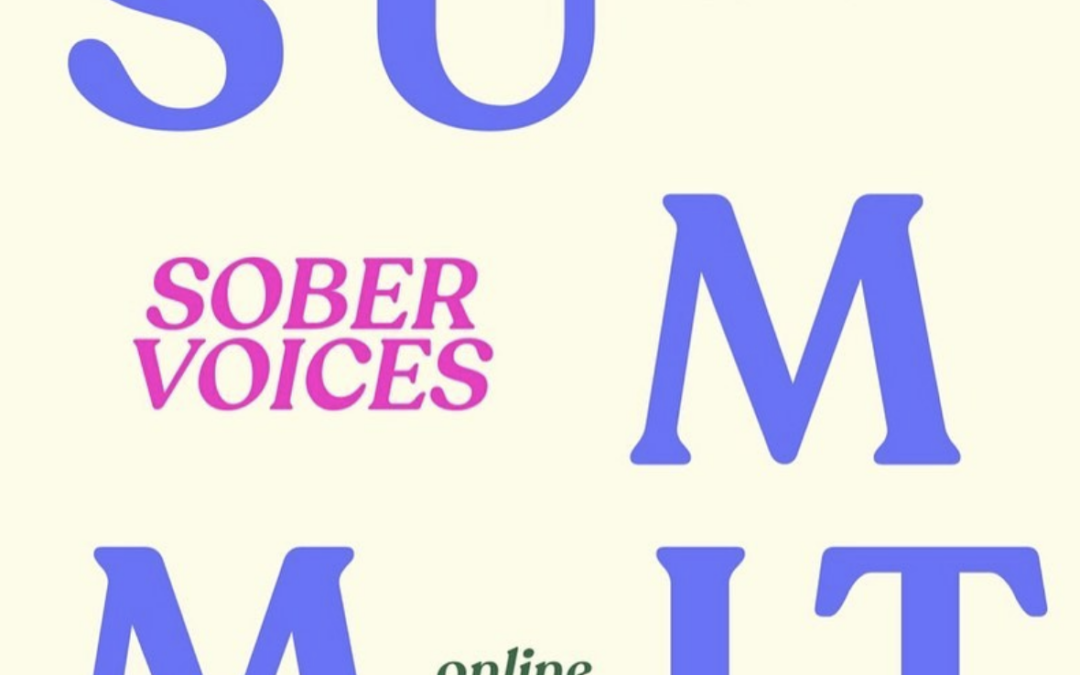By ARHE Fellow, sylvia ildsjel
Sober Voices held its very first virtual summit on Feb 4th through the 6th. The summit featured over 40 speakers across 12 categories, all bringing stories and visions for the future of the sober movement. Tempest, an alternative recovery program started by author and activist Holly Whitaker, was the primary sponsor for the summit alongside other recovery organizations and non-alcoholic refreshment companies.
The weekend event was labeled as a “people-first, inclusion-first virtual summit for the sober & sober-curious movement.” The organizers dedicated themselves to amplifying diverse sober voices and illuminating multiple recovery pathways. Starting as it chose to proceed, the summit recognized the need to establish financial accessibility for marginalized identities. Hence the registration system included a sliding scale, offering a lower fee for queer, trans and/or disabled/chronically ill and/or BIPOC folx. Many of the talks were pre-recorded and made available at the time of the session with captioning and transcripts, while a few keynotes were presented live via Zoom. Often a speaker was present in a live chat box alongside the pre-recorded videos to answer questions and contribute to the conversation.
Journalist, speaker, and podcast producer Shayla Martin discussed the history and misinterpretations of the 10th tradition of Alcoholics Anonymous, which states “Alcoholics Anonymous has no opinion on outside issues; hence the A.A. name ought never be drawn into public controversy.” The practice of keeping one’s personal “outside issues” away from meeting is a practice that is not technically supported by official AA literature, and has historically led to oppressive othering. Mitigating resentment is a central tenet of success in AA. Martin asks “What happens when a members resentment, especially when based on the trauma of their lived experience, is considered an outside issue?”
Academic and artist Lazarus Letcher presented a session on making sober space for accessible and inclusive for specifically BIPOC and queer/trans folx. Letcher offered a quick history of 12-step fellowships, pointing out the centering of white cisgender men in this program. 12-step traditions are 62 percent cisgendered men, and 89 percent white. Letcher rightfully observes that “making spaces safer and more accessible for marginalized communities means spaces are safer and more accessible for all of us.” Spaces can be made more welcoming by using gender neutral language, making sure accessibility information is truly accessible, hosting education events on privilege and oppression, and continuing remote meetings even after the COVID-19 pandemic has calmed.
Founder and creative director of People Who Care, Inc, Elijah McKinnon offered an experimental session for the purpose of “committing to clarity.” McKinnon offered a combination of media, storytelling, and reflection to deepen one’s concept of what recovery means, and how to pursue a sober lifestyle rooted in harmony and intention.
In a panel session, Latiana Blue of Office Hrs, Carolyn Collado of Recovery for the Revolution, Chris Marshall of Sans Bar, Khadi A. Oluwatoyin of Sober Black Girls Club, and Crystal Rosales discussed their challenges to access sobriety as BIPOC. Some sessions were more like life coaching, in the cases of Taryn Strong of SHE RECOVERS and mindset coach Jocellyn Harvey, while others relied on recovery storytelling, as was the case with Jes Golding of Sober Duluth and writer/content creator Priscila Garcia-Jacquier.
The Sober Voices Summit was a refreshing and much needed entry to the spectrum of recovery. Organizers made good on their goals of providing diverse and critical voices in the sobriety and sober-curious community. With such a strong start, one can hope there is more to come.

